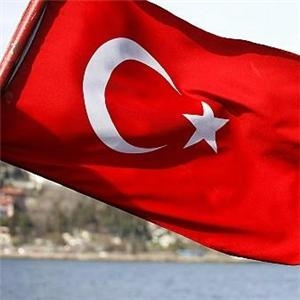The End of the Cold War and Ankara’s New Position

Having earned a notable place in NATO –after its high-profile participation in the Korean War- Ankara currently commands the second largest army in the organization. It once served as the southern front against the threat of communism emanating from the former Soviet Union, and as a legacy of those decades, Turkey still hosts a variety of conventional and non-conventional weapons -including nuclear warheads- at the U.S. controlled Incirlik Military Base located in the city of Adana in southern Turkey.
The political vacuum left after the fall of the Berlin Wall, and confusion among Turks, led many political pundits to embrace the idea that Ankara would never regain its pre-Cold War position among its Western supporters. Turkey, however, proved responsive to emerging circumstances and managed to redefine its diplomatic mission in the new era.
Supporters of the ‘Turkey down’ theory had perhaps overlooked Ankara’s geopolitical, geostrategic, and geo-economic attributes, and the fact that it was heir to a deep-rooted civilization. The Turks, on the other hand, were aware of the levers at their disposal that had aided them in extending influence in their neighborhood, and also influence global affairs, for centuries. The modern republic of Turkey–founded on the ruins of the Ottoman Empire–was profoundly Westernized, to the point that it even switched from using the Arabic script for its language (in the Ottoman era) to a Latin script under Kemal Ataturk. To date, no developments have succeeded in changing Turkey’s pro-West orientation. Westernization was a response to a clamor inside the country, namely the call of the Turkish military and political and intellectual circles.
In an unwritten agreement in the twentieth century, the West and Turkey decided to align their interests. This has not been exactly equal to an ‘overlap’ of interests, as the cases of Cyprus and the Iraq war attest. Nevertheless, Turkey has never abandoned its macropolicy of leaning to the West –even during the rule of the AKP Islamists.
The drastic reforms carried out in Turkey during recent years in fact approximate a revolution. In the international arena, Turkey has shifted from a security-oriented, closed-guard posture to an open, pro-interaction policy, aiming to minimize tensions with its neighbors and improve bilateral ties. Brokering negotiations between regional states (Syria and Israel, Afghanistan and Pakistan), chairing the Organization of Islamic Conference (OIC), membership in the UN Security Council, dispatching troops to Afghanistan, establishing the Organization of the Black Sea Economic Cooperation (BSEC), founding the Developing Eight (D8 –developing Muslim countries), these are all a part of Turkey’s larger plan to overhaul international diplomacy. Anchored to the Western camp through its membership in NATO, Turkey has never ignored the ‘soft’ side of power. So it comes as no surprise that despite its diplomatic and military conflicts, whether inside the country or with its neighbors, Turkey also promotes The Alliance of Civilizations.
The key to success in Turkey’s story has been complying with international norms and coordinating diplomatic strategies with the West. These, plus Ankara’s potentials and its unique regional status, have now turned it into global capitalism’s favorite regional hub. The remarkable volume of foreign investment during recent years can be analyzed from this perspective. A shift toward a market economy began in the days of the late Turgut Özal, who served as Turkey’s prime minister and president for nearly ten years. His economic policies –since pursued by the Islamists of the Justice and Development party (AKP)- have now turned the country into the world’s sixteenth largest economy, and made Turkey a member of the G20.
With its political, economic, and cultural achievements, Ankara indeed outshines other regional states and aspires to turn its government into a role model of statecraft. This could not have been achieved if it wasn’t for support from the West, which believes that Turkey’s evolution into a developed nation can help it reach its Middle East objectives in a shorter time. In another step towards the democratization of Turkey, its Parliament’s Constitution Committee is seeking amendments in the law in order to reduce the power of non-elective institutions, and to confer to elected officials the largest share of authority.
Full materialization of this project -which began in the military and the judiciary- will give Turkey a truly democratic face. An advanced economy and democracy, along with the support of the international community, can turn Turkey into a socio-political pressure lever against other regional states. In the near future, Turkey will not only dominate the economic and political affairs of the region, but it will also turn into a model for human rights (women’s rights, religious freedom, ethnic rights) in the Muslim world, a fact that will significantly influence the domestic developments of other countries. This is something that many regional states are ignoring, but sooner or later, their efforts to upbraid Turkey’s international standing will backfire.

